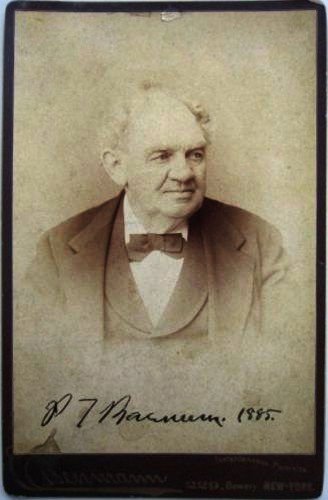“There’s a sucker born every minute.”
That quote is believed to be one of P.T. Barnum’s most famous words. P.T. Barnum has become famous in modern history, thanks to the hit film “The Greatest Showman,” a musical that’s loosely based around Barnum’s life and his circus. Barnum is widely considered to be one of the best purveyors of entertainment, a genius when it comes to sales and marketing, and this quote somewhat became his legacy. But did he ever really said this? Let’s find out.
History Behind the Quote
Barnum’s biographer Arthur Saxon tried to track down when and where P.T. Barnum uttered this phrase, but he was unable to verify it. Saxon claims that there’s no contemporary account of it, or even any indication that the word “sucker” was used in the derogatory sense during his day. Also, Barnum wasn’t the type of person to disparage his patrons.
Instead, it was more likely that a banker named David Hannum was the one who actually said it. The strange story began with a tobacconist named George Hull. Hull was an atheist who decided to create a giant petrified man after an argument at a Methodist revival meeting about a Scripture that states some giants once lived on the earth. Hull hired men to sculpt a ten-foot-long block of gypsum then buried it in Cardiff, New York. Nearly a year later, Hull made his cousin hire men to dig a well to “discover” the giant.
Hull and his cousin set up a tent, set the “giant” up for display, and charged people who wanted to see it. People came by the wagonload, as people traveled from all over New York just to see it. Hull’s hoax became a success, and the Cardiff Giant became one of the most famous hoaxes in American history. Most people were convinced that it was a petrified man since Hull went to great lengths to make the statue look realistic. Theologians and preachers also believed that it was authentic, as some thought it was a statue made by Jesuit fathers more than three centuries prior.
Eventually, David Hannum bought the Cardiff Giant in 1869, brought it to Syracuse, New York for exhibition, and charged even higher admission fees. Again, it drew crowds that it caught the eye of P.T. Barnum, who tried and failed Hannum to sell it. When he was unable to purchase the giant, Barnum decided to create his own version of the giant and claimed it to be the original, and that the Cardiff Giant was a fake.
As the newspaper reporters wrote Barnum’s version of the story, Hannum was quoted as saying, “There’s a sucker born every minute,” pertaining to the crowds of spectators paying to see Barnum’s giant. Since then, the quote was often misattributed to Barnum.
The fascinating story led to the courtroom, wherein Hannum sued Barnum for defamation. As it turns out, Hull confessed everything to the press, and both giants were revealed as fakes, but the judge ruled that Barnum cannot be sued for calling a fake giant “fake.”
Mentions of the Quote
Early uses of the phrase refer to it as a catchphrase among gamblers. During an 1879 discussion of gambling in Chicago, an old-timer is quoted saying the quote, and the use of quotation marks indicates that the quote must have been an already established catchphrase. The phrase appeared in print in 1885, from the biography of Hungry Joe entitled, The Life of Hungry Joe, King of the Bunco Men.
The phrase also showed up in the 1906 European Magazine, in which the quote was written: “That there vash von fool born every minute.”
David W. Maurer, the author of The Big Con (1940), stated that there was a similar saying among con men: “There’s a mark born every minute, and one to trim ’em and one to knock ’em.” In this quote, “trim” means to steal from, and “knock” means to persuade someone away from a scam. The quote means that there is no shortage of new victims, nor of honest men, nor of con men.
In a John Dos Passos novel The 42nd Parallel (1930), the quote is attributed to Mark Twain.
